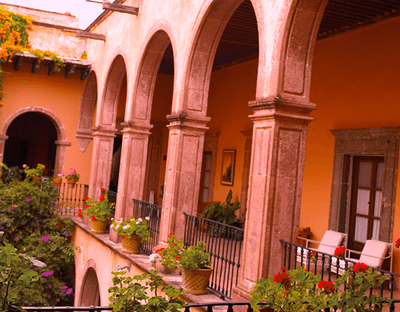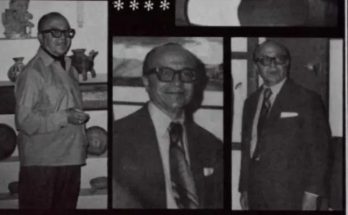By Luis Felipe Rodriguez
Historians estimate that Mexico took in between 20,000 and 25,000 Spanish refugees between 1939 and 1942, much of it during the government of President Lázaro Cárdenas del Río. Of these refugees, it is estimated that «intellectual immigration» or «elite» made up approximately 25% of the total. The Spanish exile enriched the American continent with the arrival of philosophers such as María Zambrano, the poets León Felipe, Luis Cernuda and Juan Rejano, narrators such as Francisco Ayala and Max Aub, who with good humor removed the pain of exile.
An Asturian couple arrived in San Miguel de Allende, sheltered by the Mexican government, because of their republican ideas there was no place in Franco’s Spain. Added to this “opprobrium” was the fact that the head of the family was the commander of a military zone; in the middle of the revolution they had their only son (1937), removed to Barcelona, during a bombardment he was wounded and his family lost contact with him. The civil war was won by General Francisco Franco so the opponents were expelled from their homeland. The soldier’s wife and their two-year-old son were in a concentration camp for 6 or 7 months and then left across the French border when her sister asked to be allowed to go home because she lived in Bordeaux north of Perpignan.
Life is difficult when you lose everything due to war and worse when you don’t have a solid academic preparation to support it. Carmen has to find a livelihood for herself and her son and is fortunate to be employed at the Mexican Embassy by Mr. Alfonso Rosenzweig Díaz, who was a career diplomat who began in St. Louis Missouri in 1907 with the humblest job of the consulate. and he climbed several positions until reaching the highest commission and working for Mexico in a dozen countries, then he represented Mexico in the First Assembly of the United Nations, among other important assignments representing our country.
When the ambassador was informed of the loss of Lieutenant García Tirador, he was interested in his location and found him wounded in a hospital in England, where he was confined as a result of multiple operations for wounds in combat. The family meets and collaborates in the embassy as a translator and secretary. At the end of 1947 he must return to Mexico and, knowing the situation of the Spanish family, he decides to help them and offers to process their asylum and also gives them tickets to travel by boat from France to New York, where they spend a Christmas dazzled by the Big Apple, to finally continue the journey by rail to Mexico City. Arriving in Mexico, they find reality again: alone, in a foreign country, without work, with $120 dollars in their pocket as capital, the future is not seen with the best colors. They rent an apartment in Col. Nueva Santa María, they acquire its furniture: a mattress and a stove. Sent to acquire necessary groceries, the ten-year-old boy changes the list and acquires a bunch of bananas, a fruit he did not know.
I said a little earlier that Spain not only lost great intellectuals, but «competent workers and peasants» also arrived in greater numbers, as well as soldiers, sailors and pilots, statesmen, economists and businessmen, all of them linked to the Republican government defeated in war. Necessity is said to be the mother of creativity and the family fought tooth and nail for a better future. She took a job as a seamstress and finally in 1964 they offered Don Onofre Sr. a job in Taboada and they moved to San Miguel de Allende.
In 1997 they opened a candy store on Calle de Juárez to which they named: the «Mercado del dulce», later they changed their line of business and replaced the candy with stationery, «Héroes Insurgentes». One of her great skills is cooking. They decide to venture into setting up a family business and rent the upper part of Don Luis Malo’s house, on Cuna de Allende street. Then was born: Posada “Carmina”. His frank smile and his kind treatment are mixed with a delicious seasoning. Follow the success? It was not easy. Little by little they became clients and for 18 years they were tenants of Mrs. Alicia González, the owner who one fine day suggested that she keep the property that faces Cuna de Allende Street. They negotiate the payment and close the deal, the rest is history. Doña Carmina also worked promoting the DIF and was the founder of Asilo Alma A.C.





